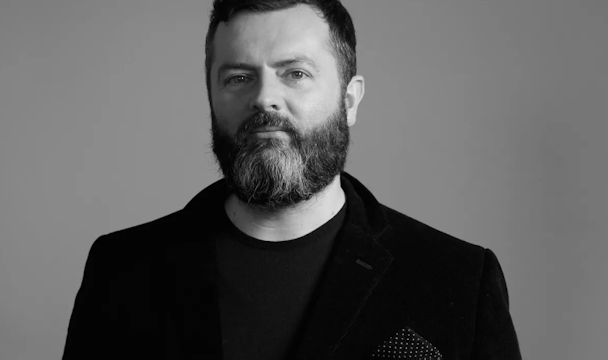The radical return: why we’re making hybrid work into a creative advantage
Ad agency R/GA recently unveiled its plans to create a hybrid workplace that works for staff as well as clients. Global chief strategy officer Tom Morton explains how and why they created the model.

R/GA’s global chief strategy officer Tom Morton wants a truly hybrid working model
My company has just made two consequential decisions: planning to reopen our offices in New York and London by the end of the month, and committing to a truly hybrid working model. These choices now require us to figure out the future of work. But we didn’t approach these decisions as a logistical headache: we saw them as a chance to create a creative advantage. They might make us a better company.
It begins with being real about what hybrid work truly means. For us, it‘s about allowing staff to choose whether to work from home or from the office, or both, and accommodating their choices. A working model that requires everyone in the office for a set number of days isn’t hybrid, because the default is the office. Our choice came from an ongoing conversation with our people about what conditions would enable them to do their best work. Hearing that 60% want to spend some time working in-person doesn’t equate to 100% working a three-day week in the office. Pro tip: if you‘re taking an attendance register, you’re not hybrid.
We’re confident about doing this because of our achievements in a year and a half of remote work. Our people have broken the traditional link between presence and productivity. 2021 has been our biggest year for new business wins. We had our best awards haul at The One Show, and picked up ten Cannes Lions, including a Grand Prix, with work developed remotely. We know that wins and work are possible away from the office.
We have to reinvent the role of an office for a creative company. Offices shift from being containers of the company to being tools for our work. Ours will become places for project milestones, special events and immersive learning. They will be venues rather than factories. I’m happy to give up my fixed desk for a war room, a classroom and a coffee bar.
If we’re serious about making a success of true hybrid work, we have to make space for remote employees. We’ve done this throughout the Covid-19 era. Many of our leaders are lockdown hires, or people who are based far from our physical offices. Three new leads in our New York flagship prove this. The connections planning lead lives in Chicago, while the executive creative director, who leads campaign creative work, and the managing director, who leads product and service work, have never set foot in the office. The awards manager who organized our record awards season did so from a farm in rural Maryland. It’s easy to have solo specialists working remotely; it gets real when leaders are.
We need parity of esteem and equality of opportunity between people working from a (hot) desk or from a roof deck. That applies for workshops and performance reviews. Some of our people have been promoted twice while working remotely; that has to continue. It means cameras in every room for Zoom meetings and Miro boards replacing whiteboards so people are literally on the same page, whether they dial in or sit in.
True hybrid work allows us to draw from a bigger talent pool. Almost 40% of our project teams now consist of people from multiple offices. We can offer opportunities to people who live beyond commuting distance from our offices. We can be a better working option for people who don’t want to make choices between how they live and raise their families, and where they can work.
The economic recovery has tipped the balance of power between workers and employers. The US economy is on course to grow by 7% this year. There are 8m job vacancies. 4 million Americans chose to leave their jobs last month. There’s even a term for this: ‘epiphany quitting‘. 2020 taught us that there is no clean barrier between work and personal life. If people have more choices than ever about how to deploy their talents, why limit their options by making demands on where they live and when they come in?
Across the creative industry, we need to raise the return to the office from an HR issue into a chance to reset the future. The scale of the change makes this a problem worth solving for any companies that live by innovation. R/GA’s purpose is to design businesses and brands for a more human future; we need to turn that ambition back on ourselves. Like any design project, it will iterate as we find out what works. Rishad Tobaccowala describes hybrid companies as software releases that take shape over time. We need to be humble enough to learn as we go, and to share our progress. The return could be just as radical as the year of lockdown.
Tom Morton is global chief strategy officer at R/GA.
